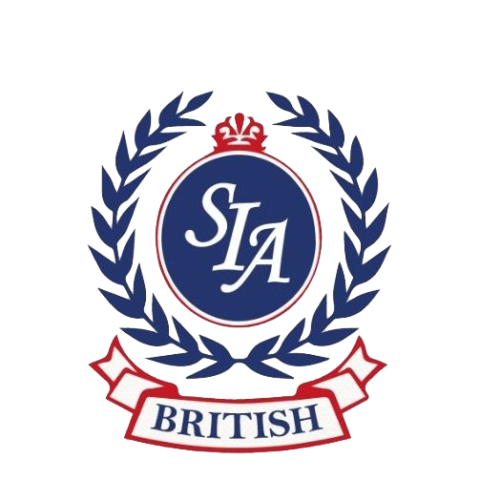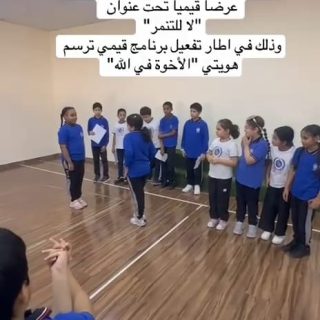Behaviour Policy
- To provide a shared, consistent and commonly agreed approach to
- behaviour management
- To provide a system to reward and encourage good behaviour, through a positive approach
- To reduce instances of poor and inappropriate behaviour
- To build self-esteem
- To encourage self-discipline and self-motivation
- To teach children to accept responsibility for themselves and their actions
- To foster an attitude of respect and care for others
- To provide a calm, secure and positive environment
- To celebrate success
- To raise standards of achievement
- Teachers and all paid staff in school have a statutory authority to discipline pupils whose behaviour is unacceptable, who break the school rules or fail to follow reasonable instruction. The sanction will be in line with those set out in this policy
- Teachers can discipline pupils at any time the pupil is in school or elsewhere under the charge of the teacher, including on school visits
- Teachers can discipline pupils for misbehaviour outside school
- Teachers may impose detentions outside school hours
- Teachers can confiscate pupils’ property
Children are given clear guidelines of the appropriate behaviour and expectations in all areas based on our Behaviour Policy which all staff expect the pupils to abide by. The policy is applied equally before school activities, play times, lunchtimes, lesson times, school trips and clubs that happen after school and during holidays.
- planned curriculum work
- planned assemblies
- teaching and learning styles
- well organised school routines
- high expectations and consistency from all staff
- specific support for those experiencing difficulty
- Do as you are asked first time
- Always do your best
- Be kind and polite to everyone in school
- Use a quiet polite voice in school
- Always walk in school
- Always put your waste paper, wrappers etc in the bin
- Always ask permission to leave class
- Class teachers will have agreed class rules with their pupils that reflect those above
- Class passes should always be used when a child wishes to leave the classroom
L Listen and follow directions
E Enter on time, be prepared and ready to work
A Always try your best and do ALL the work
R Respect yourself, others and property
N No excuses
- At all times we try to speak to the children in a positive way.
- We speak about the behaviour that we want to encourage, rather than suggesting those which we do not.
- We draw attention to examples of good behaviour and children keeping to the rules, but minimize the attention given to children who show poor behaviour.
- We use “Do ….” expressions, rather than “Do not ….”
- We promote a calm atmosphere in school where all shouting is discouraged and where children move around in a quiet and orderly way.
- We start and finish each day and each session, where possible, with a positive thought or comment.
- We celebrate achievement in good behaviour and communicate this to the children and parents at every possible opportunity.
We reward our children in a variety of ways including:
- Smiles, stickers, stamps, certificates, verbal praise
- Effort chart & stickers
- Table/team points that earn rewards
- Daily certificates or notes to go home
- WOW! Awards (end of each week and term)
- Letters, texts and positive postcards to parents
Depending on the year group, at the start of each day all children will read aloud the class/ school rules until behaviour is modified. Focus will be on positive behaviour.
If children are behaving in an inappropriate manner, they are given:
- First: a verbal warning.
- Second: they will be moved to another chair/class.
- Third: one to one counselling with student.
- Fourth: child will be taken to the Principal or Academic Coordinator and have signed written warning put in file as well as letters to parents and carers regarding a pupil’s behaviour.
- Phone calls to and meetings with parents and carers to discuss behaviour.
- Loss of part of playtime
- Suspension
- Representing the school – if a pupil cannot follow school rules in class and around school, serious consideration should be given to the appropriateness of that pupil representing school at another setting.
Level 1
- Interrupting
- Negative actions or words
- Not cooperating
- Rudeness
Level 2
- Continual flouting of the school rules
- Deliberate, continued defiance
- Answering a member of staff back (or other adult working in school)
Level 3
- Disrespectful behaviour towards any member of staff
- Verbal abuse to adults or children
- Deliberate damage to school or other people’s property
- Misuse of equipment, causing danger to others
- Theft
- Violent behaviour of any kind towards either a child or an adult.
- Inappropriate, swearing or foul language
Rewards for good, excellent and outstanding behaviour.
Foundation Stage
Students in Foundation Stage will receive ‘Star of the Week’ and ‘Super Star’ of the month awards
Primary students
- Children who are consistently well behaved will be given a ‘Star of the week’ certificate during Thursday Assembly
- These certificates will be awarded for participation, behaviour, academics and contribution.
- Students must receive 25 points in order to receive an ‘A’ badge
- If students receive 5 ‘A’ badges then the next badge will be red.
We value our partnership with parents/carers and encourage involvement in all aspects of school life including discipline and behaviour. We aim to:
- Welcome parents/carers into school and make them feel valued.
- Clearly define the role of parents/carers in school, matching interests and skills to activities.
- Develop good communication between parents/carers and school.
Staff welcome early contact if parents/carers have a concern about their child’s behaviour or fear that they are being upset by others. If parents/carers and school work together we believe that the discipline and behaviour of children will be maintained and respected by all.
- By ensuring that children arrive punctually for the start of the school day.
- By ensuring that children have appropriate dress for school and PE so as to take a full part in all school activities.
- By supporting the school in our policy that all children are expected to behave in a responsible manner, both towards themselves and others, showing consideration, courtesy and respect for other people at all times.
- By ensuring that children show a proper regard for other people’s property, buildings and the environment.
- By ensuring children’s regular attendance at school and avoiding unnecessary absence.
- By informing the School Office if a child is unable to attend school for any reason. If a child is absent and parents fail to inform the office, a First Day Response will be made.
Hate motivated bullying and incidents may take many forms such as of physical assault, intimidation, verbal abuse, property damage, propaganda and incitement.
Examples of hate motivated incidents include:
- Refusal to co-operate with others on the grounds of their race, colour, gender and ethnicity.
- Racist remarks or jokes.
- Assault.
- Name calling.
The way in which a hate motivated incident is dealt will depend on a range of factors including the seriousness of the incident, the age and understanding of the children involved and the context. The school’s behaviour policy sanctions will be applied to the situation as appropriate involving discussion with the pupil’s parent or carer.
It is important that all incidents are dealt with quickly, sensitively and consistently. This will include;
- Supporting the victim;
- Explain to those responsible and any onlookers what is unacceptable about the incident;
- Plan action for the bully and the victim;
- Contact parents of those involved;
- Record the incident and action taken using the racist incident monitoring form which is help in the Hate Incident Log File in the office;
- Report the incident to the Principal
There are a number of definitions of bullying but all definitions include the following characteristics:
- that it tends to be repetitive or prolonged
- that it involves an imbalance of power
The main types of bullying are:
- Emotional – being unfriendly, excluding, tormenting (e.g. hiding books, threatening gestures)
- Physical – pushing, kicking, hitting, punching or any use of violence
- Racist – racial taunts, graffiti, gestures
- Verbal – name-calling, sarcasm, spreading rumors, teasing
- Being called names
- Being teased
- Being pushed or pulled about
- Having your bag and belongings thrown around
- Having rumors spread about you
- Being ignored and left out
- Being forced to hand over money
- Being attacked because of your religion or colour
The important thing is not the action but the effect on the victim. No one should ever under-estimate the fear that a bullied child feels.
Bullying hurts. No one deserves to be a victim of bullying. Everybody has the right to be treated with respect. Pupils who are bullying need to learn different ways of behaving.
We adopt a pro-active approach to bullying. Through assemblies, the school Rules, and recognising and modeling positive behaviour we are committed to ensuring that the school community work together to create a happy, safe, caring and stimulating learning environment. We continually reinforce the importance of treating others well rather than simply reacting to incidents when they occur. We raise awareness of bullying through the school curriculum and ensure children have the opportunity to talk about bullying through circle time.
If someone you know is being bullied:
- Don’t rush over and take the bully on – you don’t want other people to think you are a bully!
- Let a teacher or adult know what is happening
- Try to be a friend to the person being bullied
- Refuse to join in
If you are being bullied;
- Always remember if you are being bullied you can do something about it
- Remember it is not your fault
- Practice what you want to say
- Write down what is happening
- Don’t give up
- Ask your parents to visit the school
- Talk over what to do with a friend, a teacher, mum, dad, guardian, or someone you trust
- Remember, at Woodland we listen carefully to children when they tell us they are being bullied
- Take control, tell us your views and opinions
- TELL, TELL, TELL
We believe that bullying is unacceptable. All staff need to be alert to bullying both inside and outside the classroom. It is the responsibility of everyone to report acts of bullying as soon as they arise. This is a telling school.
To be seen to act is as important as taking action.
Silence and secrecy nurture bullying.
If you come across bullying what should you do?
- Ensure the victim is safe and being cared for
- Take the incident seriously
- Take action as quickly as possible
- Reassure the victim, don’t make them feel inadequate or foolish
- Offer concrete help, advice and support to the victim(s)
- Make it plain to the bully that you disapprove.
- Encourage the bully to see the victim’s point of view.
Taking action
- Complete an incident form with the person reporting the bullying. (This should be done by the member of staff in whom the victim has confided or jointly with the parent and pupil if reported in this way.)
- Ask the school administrator to copy the incident form as a matter of urgency to:
- the victim’s Class teacher to be filed in the class behaviour management file.
- the Class teacher(s) of the alleged bullies.
- The Class teacher of the victim will investigate the report of bullying, working with other staff as appropriate.
Check you have done all the points above – particularly relating to the victim;
The bully (bullies) will always be asked to apologise.
The parents or guardians of the victim and bullies will be involved whenever possible.
In serious cases class exclusion or even school or fixed term exclusion will be considered.
Whenever possible, the pupils will be reconciled.
After the incident / incidents have been investigated and dealt with, the situation will be monitored to ensure repeated bullying does not take place.
If you suspect that bullying may be happening that involves pupils please take the following action:
- Encourage the victim to tell a parent, guardian or teacher;
- Report it to a member of school staff;
- If appropriate let the parents of the victim and/or bully know









